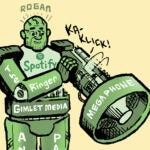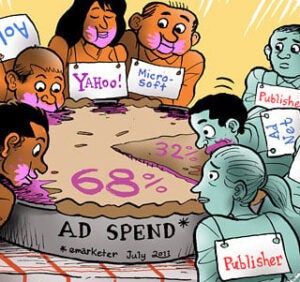“Data-Driven Thinking” is written by members of the media community and contains fresh ideas on the digital revolution in media.
Today’s column is written by Jay Friedman, president and partner at Goodway Group.
The known/unknown grid made famous by former US Secretary of Defense Donald Rumsfeld might as well have been about the state of internet privacy going into 2021. It’s an interesting model and lens through which we can look at where we’re headed, and here’s what we can expect as we tackle this complex and important issue in 2021.
Known knowns
First, responding to the market in 2021 requires us to understand that the issues of privacy, anonymity and identity are connected, but separate. No matter what happens with privacy, if Apple deprecates IDFAs, then our ability to identify, tailor messaging and measure user-level behavior within iOS apps will become degraded or impossible. This is already the case for Safari users. While these changes are meant to protect privacy, a reasonable amount of privacy can be preserved without doing away with device identifiers or cookies.
Second, GDPR in Europe and either CCPA or CPRA in California will be in effect and enforced in 2021. While this may only apply to California, larger marketers, platforms, and technology companies will surely not risk an ad being served to a watchdog hitting refresh while sitting just inside the border of a neighboring state waiting to declare non-compliance. I expect that whatever law is in place in California will be widely observed across the United States.
Third, marketers will become much more prepared for the changing identity landscape by prioritizing how they harness and use their first-party data.
Last, cookies will not be eliminated during the 2021 calendar year. More on that in a minute.
Known unknowns
Our biggest category! Will Apple restrict device identifiers? In a rare move, Apple delayed pulling the trigger on this policy until next year. While I wouldn’t call this certain, it’s highly probable.
Additionally, while cookies won’t go away during 2021, we don’t know how the future steady-state will take shape. Will it be one of the bird proposals? Will these be scrapped altogether because they still enable creepiness?
How much enforcement will we continue to see on GDPR, and begin to see on CCPA? In the United States, enforcement partly depends on the politicians behind it and how hungry they are to make a name for themselves. Will the authorities seek to make an example of the companies that are most egregious, regardless of their size? Or, perhaps, companies that are household names, regardless of the size of their infraction?
AdExchanger Daily
Get our editors’ roundup delivered to your inbox every weekday.
Daily Roundup
Also, both CCPA and CPRA appear to allow the GDPR-like opt-in format where “accept” is the only choice unless the user clicks deeper into the site to read more and opt-out. If this scenario continues, publishers won’t have to worry about significant opt-outs, but if the law ever requires that both buttons be presented equally in the pop-up, we could see much higher opt-out rates, affecting publishers’ ability to have partially known relationships with their users.
Finally, what will the W3C do? Will Global Privacy Control become more widely adopted? Will it be a highly visible toggle at the top of your browser, or perhaps buried layers deep in the settings? Will the Privacy Sandbox be primarily for Chrome but not Safari? We don’t know. But at least we know that we don’t know.
Unknown knowns
At first, this sounds funny. How can we not know what we know? This is where gut, instinct and experience come into play. We might not know why we know something, but we’re certain of how it will play out. I’d categorize this area into three truths that underpin our ecosystem today. They are:
- Publishers must make money.
- Advertisers will not pay their agencies more than before, even if it’s now more work to do the same thing.
- Human beings find workarounds when they believe a law, company policy or standard is unfair.
These truths, regardless of the changes to our landscape, will ensure that some of the fundamental digital tools we’ve come to rely on will continue to exist over the next few years. Some form of third-party cross-site behavioral advertising will be possible, more-than-post-click attribution will be possible and the open web will thrive.
Unknown unknowns
It’s difficult to define scenarios we don’t know we don’t know about. But the combined effects of privacy legislation and enforcement, antitrust action, tech platform policies, consumers’ reaction to those policies and trade group initiatives all fit into this category. For instance, how will the law and Privacy Sandbox progression end up playing off each other? There are dozens of and it’s nearly impossible to even identify them all, much less predict how they would play out.
Regardless of the known/unknown camp we fit in, prioritizing first-party data quality and having incredibly smart people on your team to help synthesize the unknown unknowns will be key to a successful 2021.
Follow Jay Friedman (@jaymfriedman) and AdExchanger (@adexchanger) on Twitter.














